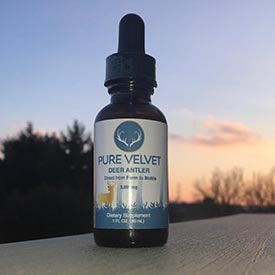If you own a gym, you might be wondering if selling supplements can increase your business's revenue. Statistics show that three-quarters of Americans take supplements. Whether it's creatine, glutamine, deer antler velvet extract, whey protein powder or branched-chain amino acids (BCAAs), they provide bodybuilders and health-conscious individuals with the nutrients needed to achieve their fitness goals. Before investing in wholesale supplements to sell at your gym, though, you should consider the way in which it will affect your business's revenue.
It Increases the LTV of Your Customers
Selling supplements can increase the lifetime value (LTV) of your gym's customers. Even if someone is already a member at your gym, he or she may purchase supplements to fuel their workout regimen. As a result, you'll generate more revenue from your gym's customer throughout the duration of their membership.
It Attracts More Foot Traffic
You'll reap the benefits of more foot traffic to your gym when selling supplements. As word spreads about your gym's new offerings, some people visit your business specifically to buy supplements. Your gym's sales reps can use this opportunity to sell memberships to these new customers, resulting in increased revenue. Just remember to market your supplements to gain customer awareness. Otherwise, selling supplements won't have a meaningful impact on your gym's foot traffic.
It Distinguishes Your Gym From Its Competitors
There are more than 38,000 gyms in the United States, most of which rely strictly on membership sales as their primary source of revenue. You can distinguish your gym from its competitors, however, by selling supplements. When choosing between a gym that only sells memberships and another gym that sells both memberships and supplements, bodybuilders and health-conscious individuals will probably choose the latter.
It Increases Customer Loyalty
Members are less likely to cancel their membership if your gym offers something that they use on a regular basis, such as supplements. To encourage bigger gains, for example, a member may purchase and use a whey protein powder supplement from your store. Derived from cheese, whey protein powder stimulates the production of new muscle tissue, allowing gym members to build muscle more quickly. While members can always purchase whey protein powder or other supplements from a dedicated supplement shop, many prefer the convenience of buying them at the gym.
It Projects Your Gym As a Health and Fitness Authority
Another way that selling supplements can increase your gym's revenue is by projecting your gym as a fitness authority. Some people are skeptical to purchase a membership to a gym they've never used, believing it doesn't have the knowledge or expertise necessary to help them achieve their fitness goals. If your gym sells supplements, you'll show these wary prospects that your gym is an expert in the health and fitness field. Therefore, they'll feel more confident buying a membership and engaging with your business.
It Requires Minimal Overhead
It's also worth mentioning that selling supplements requires minimal overhead. Most supplements are small, consisting of bottles or jugs. And because of their small size, you can easily stock hundreds or even thousands of supplements on your gym's shelves without needing to expand their gym's current layout. Just clear out some space on your gym's shelves, and you'll be able to stock it with supplements to sell.
It Allows You to Connect With Members
Selling supplements allows you and your gym's sales reps to connect with your gym's members. While discussing your various supplements and their respective benefits, you can ask members if they are interested in other services offered by your gym, such as yoga classes or hiring a personal trainer.
It Offers High Profit Margins
Finally, supplements have a high profit margin when compared to other consumer products. It's not uncommon for gyms to mark up their supplements by 100%, meaning the gym purchases a supplement at wholesale for $7 and resells it for $14. Known as keystone pricing, it will help drive your gym's profits.
Based on this information, it's safe to say that selling supplements can increase your gym's revenue. However, it's important that you offer the right type of supplements to capitalize on this new venture. Don't just offer random variety of dietary supplements. Instead, focus on supplements that can help your gym's target audience improve their gains and reduce their recovery times.
It Increases the LTV of Your Customers
Selling supplements can increase the lifetime value (LTV) of your gym's customers. Even if someone is already a member at your gym, he or she may purchase supplements to fuel their workout regimen. As a result, you'll generate more revenue from your gym's customer throughout the duration of their membership.
It Attracts More Foot Traffic
You'll reap the benefits of more foot traffic to your gym when selling supplements. As word spreads about your gym's new offerings, some people visit your business specifically to buy supplements. Your gym's sales reps can use this opportunity to sell memberships to these new customers, resulting in increased revenue. Just remember to market your supplements to gain customer awareness. Otherwise, selling supplements won't have a meaningful impact on your gym's foot traffic.
It Distinguishes Your Gym From Its Competitors
There are more than 38,000 gyms in the United States, most of which rely strictly on membership sales as their primary source of revenue. You can distinguish your gym from its competitors, however, by selling supplements. When choosing between a gym that only sells memberships and another gym that sells both memberships and supplements, bodybuilders and health-conscious individuals will probably choose the latter.
It Increases Customer Loyalty
Members are less likely to cancel their membership if your gym offers something that they use on a regular basis, such as supplements. To encourage bigger gains, for example, a member may purchase and use a whey protein powder supplement from your store. Derived from cheese, whey protein powder stimulates the production of new muscle tissue, allowing gym members to build muscle more quickly. While members can always purchase whey protein powder or other supplements from a dedicated supplement shop, many prefer the convenience of buying them at the gym.
It Projects Your Gym As a Health and Fitness Authority
Another way that selling supplements can increase your gym's revenue is by projecting your gym as a fitness authority. Some people are skeptical to purchase a membership to a gym they've never used, believing it doesn't have the knowledge or expertise necessary to help them achieve their fitness goals. If your gym sells supplements, you'll show these wary prospects that your gym is an expert in the health and fitness field. Therefore, they'll feel more confident buying a membership and engaging with your business.
It Requires Minimal Overhead
It's also worth mentioning that selling supplements requires minimal overhead. Most supplements are small, consisting of bottles or jugs. And because of their small size, you can easily stock hundreds or even thousands of supplements on your gym's shelves without needing to expand their gym's current layout. Just clear out some space on your gym's shelves, and you'll be able to stock it with supplements to sell.
It Allows You to Connect With Members
Selling supplements allows you and your gym's sales reps to connect with your gym's members. While discussing your various supplements and their respective benefits, you can ask members if they are interested in other services offered by your gym, such as yoga classes or hiring a personal trainer.
It Offers High Profit Margins
Finally, supplements have a high profit margin when compared to other consumer products. It's not uncommon for gyms to mark up their supplements by 100%, meaning the gym purchases a supplement at wholesale for $7 and resells it for $14. Known as keystone pricing, it will help drive your gym's profits.
Based on this information, it's safe to say that selling supplements can increase your gym's revenue. However, it's important that you offer the right type of supplements to capitalize on this new venture. Don't just offer random variety of dietary supplements. Instead, focus on supplements that can help your gym's target audience improve their gains and reduce their recovery times.


